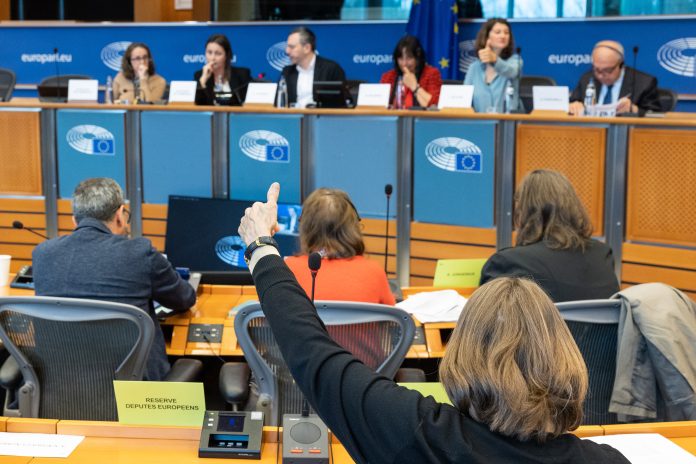Director of Project Vision Delivers a Presentation on Remapping our Happiness Metrics
Fr. Ezra Sullivan, Director of Project Vision, delivers a presentation on human flourishing at Humanity 2.0 (Vatican City)
HIGHLIGHTS
- Between 1990-2010, deaths related to air pollution have decreased by 47%
- Between 2000-2017, the maternal mortality rate dropped 38% worldwide
- Between 1980-2017, vaccine use in low-income countries increased by 70%
(ESG News) – Countries like Denmark, Iceland and Switzerland are consistently noted as being among the happiest countries in the world. Yet they also have some of the highest suicide rates in the world. Similarly, a country like the United States, with extraordinary wealth, accounts for a high proportion of the world’s suicides. Conversely, a country like Greece, which is at the bottom of many happiness scales due to economic downturn, has a low rate of suicide.
What’s going on? That was the question posited by Rev Ezra Sullivan, O.P., Director of Project Vision for Humanity 2.0. “How is it that the less happy you are, the more you want to live?” Sullivan spoke at the 2019 Humanity 2.0 Forum at the Vatican. The event was filmed live by the Traders Network Show, hosted by Matt Bird.
Sullivan said that our metrics for determining happiness —such as vaccine use, life expectancy, levels of pollution and wealth—are clearly out of whack.
“What kind of metrics should we use?” Sullivan asked. “What is true human flourishing? What is going to promote the greatest possible flourishing on different levels?”
Sullivan said these questions are what spurred the creation of Humanity 2.0’s Project Vision. By bringing together theories by an array of scholars, from Aristotle to modern psychologists, Sullivan led a project to create a map of metrics that could more accurately reflect what human beings need to flourish.
Expanding on Aristotle’s five human needs—pleasure, activity, friendship, contemplation and prosperity—Sullivan presented a dynamic system of needs that could result in true happiness.
He suggested that, yes, basic needs like food and shelter are critical, but needs at the top—such as spiritual fulfillment—should be viewed in concert with basic needs.
“The top organizes the bottom, and the bottom provides opportunity for the top,” he said.
For example, a person who is hungry is going to have a hard time being happy, but a person’s religion could affect how they are getting food. Think about times of fasting dictated by various religions, Sullivan said.
“We are really trying to see human flourishing as an integrated whole.”
He said even things like toys—often deemed unessential—are actually crucial because of the role they play in providing pleasure. There’s a reason we constantly upgrade our smartphones, he said. However, technology also represents a challenge human flourishing.
“Everyone complains about phones and social media and then uses it all the time,” he said. “It means that we see that it’s a good, but it can be bad. It’s a tool…It can be put to good use.”
But technology is only as good for the world as the people who use it. And creating people with good character starts with creating a better understanding of what it takes to be truly happy, Sullivan said.
“People who are good inside start to do good outside.”










